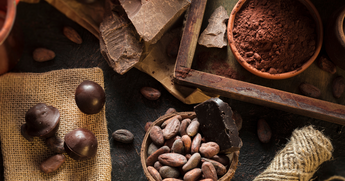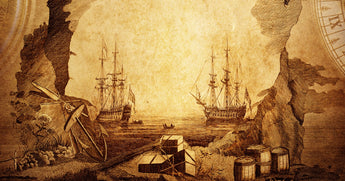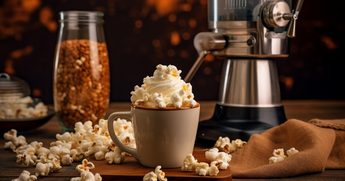There are many concerns with how the new coronavirus disease, also known as ‘Covid-19’, can be transmitted. Consumers have concerns that they could indeed catch it through eating their next dinner or simply by drinking a coffee.
Let’s first talk about how the virus is commonly spread; that is very often through respiratory droplets produced when an infected person coughs or sneezes. The droplets are then transferred through contact, such as touching or shaking hands, or touching an object or surface that has the virus on it. It is then spread by touching your mouth, nose or eyes with your contaminated hands. The virus is also spread through the air when an infected person coughs or sneezes. Hence why social distancing is so important and all hangouts in our favourite coffee shops have been banned until further notice. Banning gatherings at coffee shops though seems to have very little to do with the coffee itself being the dangerous transmitter.
In Rome, Italy, the European Food Safety Authority (EFSA) has been monitoring the coronavirus pandemic closely, and found that there is currently NO evidence that food – including coffee – is a probable source of transmission of the virus. EFSA’s chief scientist, Marta Hugas, said: “Experiences from previous outbreaks of related coronaviruses, such as severe acute respiratory syndrome coronavirus (SARS-CoV) and Middle East respiratory syndrome coronavirus (MERS-CoV), show that transmission through food consumption did not occur. At the moment, there is no evidence to suggest that coronavirus is any different in this respect.” Furthermore, the German Federal Institute for Risk Assessment (BfR), said that even though it is unlikely that the virus will be transmitted via contaminated food or imported products such as coffee, general everyday hygiene rules such as cleaning of surfaces and regular hand washing should be practiced, especially when working with and preparing foods, which also includes your next cup of coffee.
Quite frankly, it seems to be a good time to give that coffee machine a proper clean. Wipe down your nozzle, your basket, and the outside of your machine daily. Run a cleaning capsule through your machine to remove germs from your brewing chamber. Soak your drip tray, basket and water tank in the cleaning solution. Use a liquid descaler in your water tank which has antibacterial properties to keep your pipes inside the machine spotless and clean. If you need more inspiration, you can find a guide on the best way to clean your coffee machine here.
Studies have furthermore shown that viruses in general (and the coronavirus seems to be no exception) might be sensitive to heat, so the risk of infection can be further reduced by heating up what you consume. I guess we are safe here because who likes cold coffee? Please remember though, just because it is unlikely that you can catch Covid-19 from drinking coffee, it is also very unlikely that coffee will protect you from getting it. According to the BBC, fake news have made the rounds that drinking hot beverages could save you from becoming infected. Ron Eccles, an expert in respiratory diseases at Cardiff University in the UK told the BBC that “there is no evidence that hot drinks will protect against viral infections.” So basically, coffee will save you every day for multiple obvious reasons (like being able to get up in the morning), just not from coronavirus! To sum up, the good news is that getting infected by having our favourite beverage at home seems highly unlikely as we have seen that many sources have come to find that the virus is not likely to be spread through coffee and other food products. So it is safe to say that you can still enjoy your coffee without any concerns of contracting the new coronavirus. Simply remember to wash your hands thoroughly, wipe down any surfaces regularly and keep your coffee equipment clean! Sources:
















